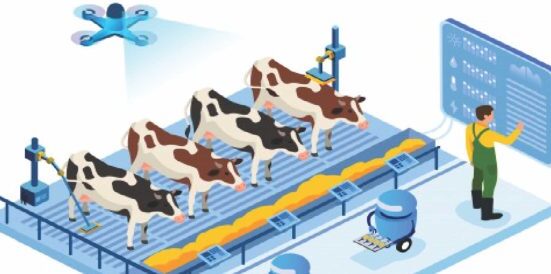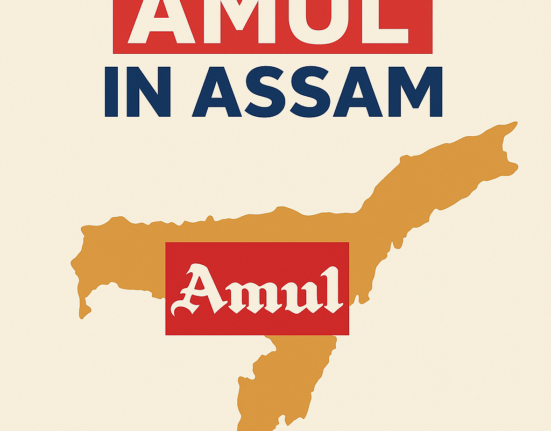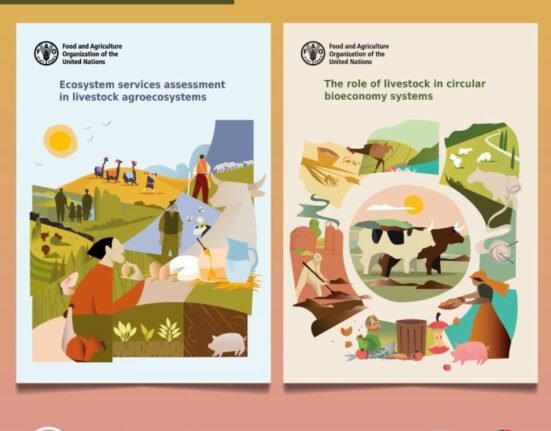With a rich heritage spanning over three centuries, Royal De Heus has become one of the world’s most respected names in animal nutrition. Headquartered in the Netherlands, this family-owned company operates over 100 production sites across 20 countries, supplying feed, premixes, and nutritional solutions to farmers in 75 markets.
India, with its growing population and dynamic livestock sector, has become a key focus for De Heus. On October 1, 2025, the company inaugurated a state-of-the-art USD 17 million feed plant in Rajpura, Punjab, with an annual production capacity of 180,000 metric tons and employment for over 300 people.
In an exclusive conversation with Think Grain Think Feed & Dairy Dimension, Mr. Rutger Oudejans, Managing Director of De Heus India, discusses the company’s legacy, its Rajpura facility, and the transformative role of quality feed in India’s dairy sector.
Could you briefly introduce De Heus and its global footprint, and explain how De Heus India fits into the company’s broader vision?
De Heus is a family-owned company with a legacy that dates back more than 300 years, starting from milling operations in the Netherlands. Today, we are a fully integrated global animal nutrition group, offering compound feed, premixes, concentrates, and feed specialties across multiple species.
What makes us unique is the combination of entrepreneurial agility, short decision lines, and technical expertise that comes with being a family-run business. Our mission is to support independent farmers worldwide by improving animal health, productivity, and food security.
Globally, we operate over 100 production facilities in more than 20 countries, employing 13,000 people, and producing over 13.5 million tons of feed annually. Our products reach farmers in 75 countries, serving poultry, ruminants, swine, and aquaculture sectors.
De Heus India is a strategic chapter in this global story. We began operations in 2017 in Rajpura with a small rented plant and have gradually expanded through partnerships in Assam and Maharashtra, culminating in our new greenfield facility in Rajpura. India’s growing protein demand, rising incomes, and government focus on modernizing agriculture make it a natural fit for our long-term vision of sustainable livestock farming.
Why did De Heus India decide to invest in a new feed manufacturing facility in Rajpura?
India is central to our global growth strategy, being one of the world’s fastest-growing economies with a population exceeding 1.4 billion. The country is already the eighth-largest animal feed market globally, with feed demand forecasted to grow at 6.3% CAGR to 2030.
We see enormous potential in the dairy sector, particularly among medium and large farms that are increasingly adopting commercial compound feed to improve yield, fertility, and animal health. North India—Punjab, Haryana, Uttar Pradesh, and Rajasthan—offers excellent agricultural infrastructure, strong logistics, and a large dairy farmer base that is open to innovation.
The Rajpura facility allows us to localize production, source raw materials domestically, and deliver high-quality feed efficiently across the region. With a population of over 350 million in North India, the market is both diverse and dynamic, providing opportunities to serve smallholders transitioning to professional dairy operations as well as larger commercial farms.
How do you assess the current scope and potential of India’s dairy feed market? Which trends are most significant?
India’s dairy sector is undergoing a profound transformation. While smallholders still dominate, the adoption of commercial feed is steadily increasing, particularly among medium and large farms. The drivers are clear: rising milk prices, increased awareness of animal health and nutrition, and government initiatives promoting dairy modernization.
Key trends in dairy feed adoption:
- Rising demand for milk and dairy products: Per-capita milk consumption is increasing steadily, and urbanization is driving higher protein intake.
- Shift toward professionalization: Farmers are moving from traditional fodder to compound and customized feed, improving yield and efficiency.
- Focus on animal health: Nutritionally balanced feed reduces fertility issues, improves lactation, and minimizes disease risk.
- Technological adoption: Precision feeding, automated feed delivery systems, and on-farm monitoring are growing among larger operations.
- Sustainability and quality: There’s increasing interest in feed efficiency, traceability, and safe ingredients, reflecting global standards.
While poultry and aquaculture also present opportunities, the dairy segment leads in growth, particularly in North and West India. Medium and large dairy farms are the primary users of commercial compound feed, with smallholders gradually transitioning.
What is the production capacity of the Rajpura facility, and what technologies ensure feed quality and safety?
Our Rajpura plant has an installed capacity of 180,000 metric tons per year, expandable to 240,000 tons. It features two dedicated production lines—one for monogastrics (poultry and swine) and one for ruminants (cattle and buffalo).
We have invested in European equipment and automation from leading suppliers such as Van Aarsen, PTN, and Prado. Key features include:
- Precision dosing and pre-grinding systems
- Hammer and pellet mills
- Micro-ingredient bins and premix dosing
- Advanced quality monitoring and process control
Automation ensures minimal human error, uniform product consistency, and adherence to strict hygiene standards. Real-time monitoring guarantees that every batch meets both international and Indian quality requirements, providing farmers with safe, nutritionally balanced feed.
How does De Heus ensure quality assurance and feed safety at the new plant?
Quality and safety are non-negotiable. Our Rajpura plant follows global De Heus protocols adapted for local conditions. The facility includes:
- World-class laboratory instruments such as Dumas and NIR analyzers for testing mycotoxins, minerals, and nutritional parameters
- Physical quality checks for pellet durability, hardness, and stability
- Hygiene protocols including fumigation, sanitation routines, and premix dosing control
- Standard Operating Procedures (SOPs), vendor audits, workflow management, and non-conformity tracking
We operate under GMP, HACCP, and PRP/OPRP standards, and are preparing for full ISO certification covering 26 processes. These measures ensure traceability from raw materials to the farmer’s feed bag, guaranteeing the highest level of safety and consistency.
What is De Heus India’s strategic vision for the next five years?
Our strategy is multi-tiered:
- Consolidate and expand in North India using the Rajpura facility to serve dairy farmers across Punjab, Haryana, and Uttar Pradesh.
- Scale operations in the Northeast, particularly Assam, through toll-milling and feed distribution.
- Expand across West and South India through brownfield and greenfield projects, aiming for a pan-India network of modern feed plants.
Beyond feed production, we are exploring value-chain opportunities including breeding, genetics, and dairy farm advisory services, leveraging international expertise to strengthen the entire ecosystem.
How does De Heus India contribute to farmer support and sustainable dairy development?
We view farmers as partners, not just customers. De Heus India provides:
- Nutritional advice and farm management support
- Customized feed solutions for different farm sizes and production goals
- Training programs to improve herd management, fertility, and milk yield
Sustainability is integral. Our feed formulations aim to optimize feed conversion, reduce environmental impact, and improve animal welfare. By supporting professionalization in dairy farming, we help farmers increase income while maintaining ecological balance.
How does De Heus’ regional expansion in Asia benefit Indian operations?
On the day we inaugurated the Rajpura facility, we also signed an agreement to acquire CJ Feed & Care’s operations in Vietnam, Indonesia, South Korea, the Philippines, and Cambodia.
This adds 17 feed mills and breeding operations to our portfolio, strengthening our Asian presence and technical expertise. For India, it means we can share best practices, advanced nutritional solutions, and operational efficiencies with our local team, ultimately benefiting Indian dairy farmers.
What message would you like to convey to Indian stakeholders?
Our message is simple: De Heus is here to stay. India is a strategic market, and we are committed to long-term partnerships with farmers, distributors, and industry stakeholders.
With the Rajpura facility, we aim to deliver high-quality feed consistently, support farm productivity, and help shape a sustainable and prosperous dairy sector. By combining Dutch expertise with Indian opportunity, De Heus is helping India’s dairy sector achieve its full potential.







